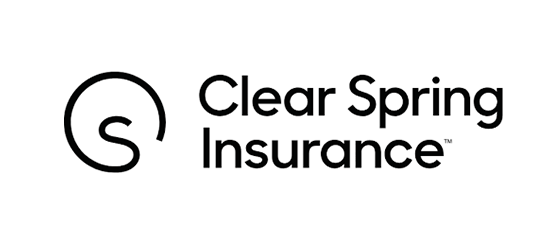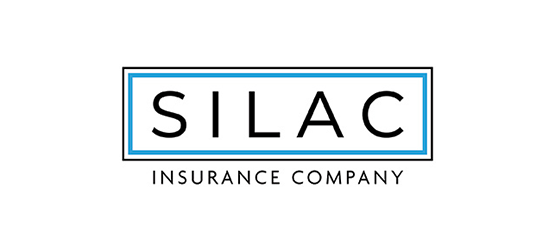What is Vision Insurance?
Vision insurance is a specialized type of health coverage designed to make eye care more affordable. It helps cover the cost of routine eye exams, prescription lenses, frames, and in some cases, corrective procedures like LASIK. Vision insurance ensures that maintaining healthy eyesight is within reach, offering financial support for both preventive care and necessary treatments.
This type of insurance is essential for individuals and families who wear glasses or contact lenses, as well as anyone looking to protect their overall eye health. Vision insurance not only saves money but also promotes early detection of vision issues and eye-related health conditions.
Key Features of Vision Insurance
- Preventive Care: Covers routine eye exams to monitor and maintain eye health.
- Lens and Frame Coverage: Helps pay for prescription glasses or contact lenses, often annually or biennially.
- Discounts on Corrective Procedures: Some plans offer reduced rates for vision correction surgeries like LASIK.
- Flexible Provider Networks: Many plans allow you to choose from a wide network of optometrists and ophthalmologists.
- Affordable Premiums: Vision insurance is typically inexpensive, making it an accessible option for most budgets.
Benefits of Vision Insurance
- Cost Savings: Reduces out-of-pocket expenses for exams, lenses, and frames.
- Improved Eye Health: Encourages regular checkups that can detect vision problems and other health issues early.
- Customizable Options: Choose plans that fit your specific vision care needs, such as enhanced lens options or contact lens allowances.
- Comprehensive Coverage: Includes benefits for children and adults, ensuring everyone in the family receives proper eye care.
- Peace of Mind: Provides financial relief for unexpected vision care expenses or changes in prescription needs.
Types of Vision Insurance Plans
- Employer-Sponsored Plans: Often provided as part of workplace benefits, covering routine exams and eyewear.
- Individual Vision Plans: Purchased directly by individuals or families, offering a range of coverage options.
- Discount Plans: Offers reduced rates on eye care services and products but is not full insurance coverage.
- Add-On Benefits: Vision coverage can often be added to health or dental insurance plans.
Limitations of Vision Insurance
- Restricted Coverage: Some plans may not cover high-end frames, specialty lenses, or multiple pairs of glasses.
- Annual Allowances: Benefits for lenses and frames are often capped at a specific dollar amount.
- Limited Provider Networks: Certain plans may require you to use in-network eye care providers.
- Exclusions for Corrective Surgery: Not all plans include coverage for LASIK or other vision correction procedures.
Who Should Consider Vision Insurance?
Vision insurance is ideal for:
- Individuals who wear prescription glasses or contact lenses.
- Families with children needing regular vision checkups and eyewear.
- Adults over 40, as vision needs often change with age.
- People interested in reducing the cost of routine eye care and prescription products.
- Anyone looking to enhance their overall health coverage with a focus on eye care.
Example Scenarios for Vision Insurance
- Routine Eye Care: A family of four uses vision insurance to cover annual eye exams and prescription glasses for the parents and children, saving hundreds of dollars.
- Contact Lens Wearer: A college student with a high prescription uses their vision plan to cover contact lenses and an annual eye exam.
- LASIK Discounts: A professional opts for a vision insurance plan that offers a significant discount on LASIK surgery, reducing their out-of-pocket costs.
Common Misconceptions About Vision Insurance
Misconception 1: Vision insurance is only for people with poor eyesight.
- Reality: Regular eye exams can detect underlying health issues like diabetes or high blood pressure, making vision insurance valuable even for those with perfect vision.
Misconception 2: Vision insurance is expensive.
- Reality: Vision plans are typically affordable, with monthly premiums often costing less than $20.
Misconception 3: All vision plans cover the same benefits.
- Reality: Plans vary widely in terms of coverage, allowances, and provider networks, so it’s important to review options carefully.
FAQs About Vision Insurance
Q: What does vision insurance cover?
A: Most plans cover routine eye exams, prescription lenses, and frames. Some include contact lenses, discounts on LASIK, and specialty lens options.
Q: How often can I get new glasses or contact lenses?
A: Coverage for new lenses or frames is typically offered annually or biennially, depending on the plan.
Q: Can I use vision insurance with out-of-network providers?
A: Some plans allow this but may reimburse less for out-of-network services or products.
Q: Does vision insurance cover LASIK surgery?
A: Many plans offer discounts on LASIK, but full coverage is rare. Be sure to review the details of your plan.
Tips for Choosing the Right Vision Insurance Policy
- Assess Your Needs: Determine whether you primarily need coverage for glasses, contacts, or both.
- Review Provider Networks: Ensure your preferred optometrist or ophthalmologist is included in the plan.
- Understand Allowances: Check the limits on lens and frame coverage to ensure they meet your needs.
- Consider Family Coverage: If you have dependents, choose a plan that includes comprehensive family benefits.
- Evaluate Premiums vs. Benefits: Compare the cost of premiums to the value of the services and products covered.
Why Vision Insurance is Essential
Maintaining good vision is critical for overall health and quality of life. Vision insurance ensures you can access routine eye care and corrective products at an affordable cost, helping you address vision issues early and avoid long-term complications.
Whether you wear glasses, use contact lenses, or simply want to monitor your eye health, vision insurance provides valuable financial support for preventive care, treatment, and eyewear. With flexible plans and customizable options, it’s easy to find coverage that suits your needs and budget.
Privacy and Compliance
We prioritize your privacy and adhere to HIPAA, FTC, and FCC regulations to ensure your personal information is secure. Your data is handled with care throughout the application and claims process.
See the world more clearly with Vision Insurance.






































